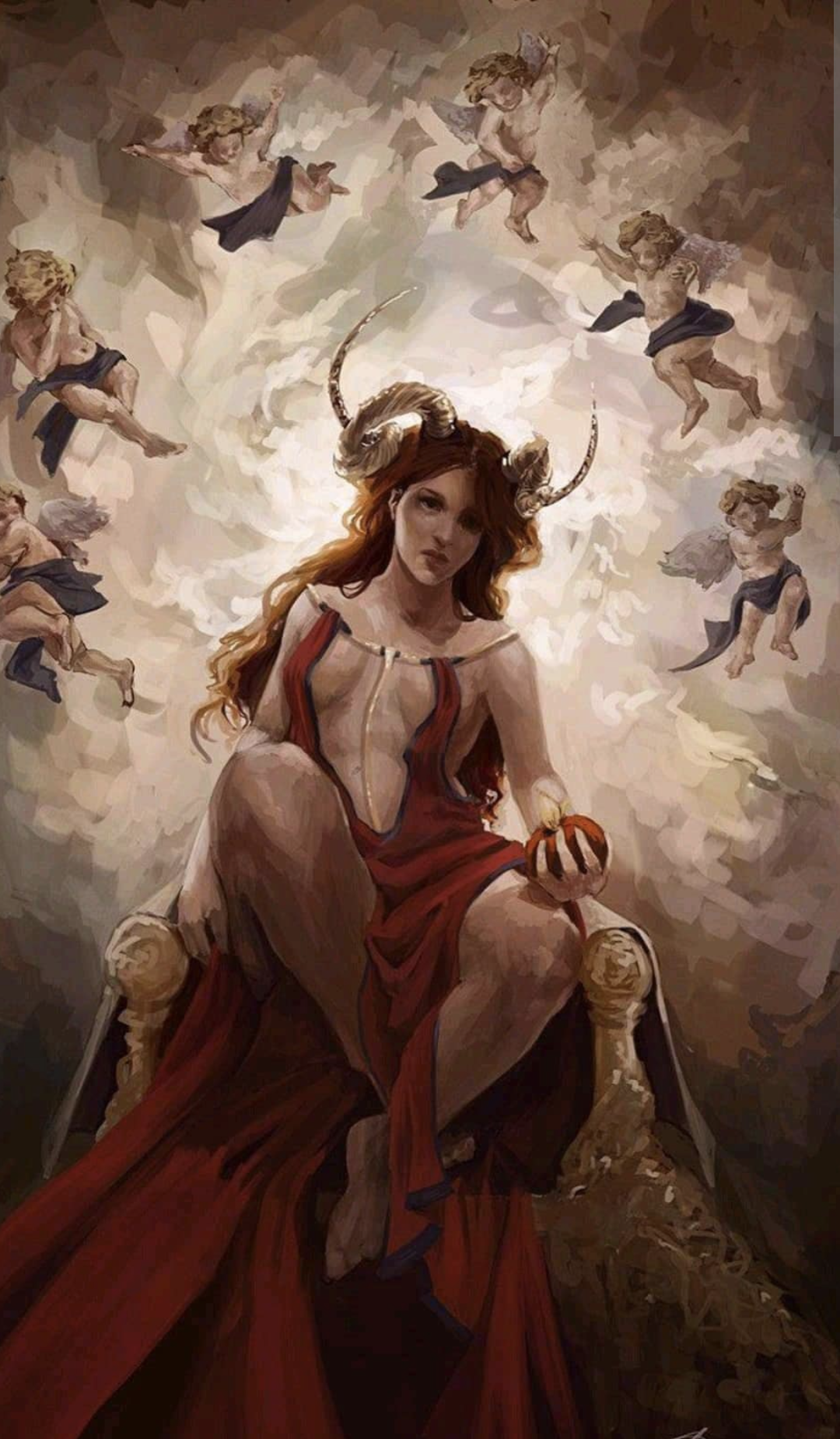Shelley was woke as fuck. Daughter of two woke ass motherfuckers and marries Lord Poet Snokeflake.
knowledge is knowing Frankenstein is the doctor, wisdom is knowing Frankenstein is the monster
Folks who have heard about the book know that Frankestein was the monster.
Folks who have read the book know that Frankestein created the monster.
Folks who understand the book know that Frankenstein was the real monster.
Why do you think Shelley had all the characters praise Frankenstein as a good man?
So far, there have been no comments on the parallels between Frankenstein and his creature and the Christian god and theirs. I think many people also assume the word creature has a negative connotation, but I would not be surprised if that stemmed from the effect this book had on society, and its use was mostly literal.
These damn college educated liberals and their basic reading comprehension
You can be a victim and still be a monster.
Was it cruel for Frankenstein to bring this tortured being into life? Yes.
Is the creature a victim then? Yes.
Does the creature purposefully harm and kill others (and also try to force Frankenstein into making another tortured being because he wants her to be ugly and face the same torment as him so she’ll have to be with him; showing that he is just as if not more willing to commit the same horror as the Dr. just to feel slightly less alone)? Yes.
Does that make him a monster? Yes.
I mean seriously guys he’s still a fucking monster.
The doctor crossed a line and did something monstrous, but he didn’t know how bad it would be. The creature, however, knows exactly how bad it is, and still wants to do commit the sin again because—by incel-esque logic—this new cursed being will have to love him. If you’re willing to knowingly subject another person to indefinite torture just to feel slightly better yourself, you might be a monster.
Serial killers often had bad childhoods, but that doesn’t excuse their monstrous actions. Frankenstein’s creature had a rough life, but he’s still a monster.
I think that’s a bit unfair. Frankenstein had no sympathy for his creation whatsoever, he ran away after creation and when he first met him he called him monster and wouldn’t listen to his story. The creature had to watch humans from afar and to learn to live, being secluded in a hut for at least a year.
He wanted to bring joy to the family which he called protectors, he helped them when they couldn’t see them and was constantly afraid of being discovered. It took him so much courage to confront the family for which he gained affection only to be attacked and they fled quickly after.
In his final speech of the book, his sentiment is basically that. All his life he wanted to converse with other humans and be included in society, but he was not allowed, because everyone called him a monster and screamed at his appearance.
Of course murdering other people was the wrong approach to this situation, but he was equipped with weapons and used them when his emotions were too strong for rationale.
Fair, it’s also been a really long time since I read the book, so perhaps my opinion has become overly biased from just having this argument over and over again and is no longer a true assessment of the source material
If you’re willing to knowingly subject another person to indefinite torture just to feel slightly better yourself, you might be a monster.
sounds like a lot of parents who choose to bring humans into this world to me, but no one calls them monsters
no one calls them monsters

It strikes me that Frankenstein, as a work of literature does try to teach a moral lesson.
To me, it feels wrongheaded to take the lesson “Hey, maybe if you’re a being born of ultimate neglect, maybe don’t do any vengeful murders” from this work.
“If you’re going to make a person, which is a thing people do all the time, it is your responsibility to not neglect or abuse them” is probably closer to the truth.

I think that defines these comments nicely if a bit cheekily
Breaking news: in act of gross defiance, student reads book
I think the problem is the students are giving too much credence to the monster’s monologues, but “He is eloquent and persuasive, and once his words had even power over my [Frankenstein’s] heart; but trust him not.”
All that aside, you can’t look past strangling a 4-year-old boy. It’s reasonable to call anything that strangles a 4-year-old boy a monster, even if it felt lonely/abandoned.
And even the monster has the self-insight to know that he’s fundamentally evil: “I had cast off all feeling, subdued all anguish, to riot in the excess of my despair. Evil thenceforth became my good.”
I think too many are equating being a victim with being innocent.
There are two kinds of people in the world, abusers and victims, with no overlap or nuance whatsoever /s
What’s the worst thing done to the monster, in your opinion?
If you really want an answer, I think we need to start early…
The monster is naive, curious, and good natured at the beginning. Delighted by fire, choosing to touch it - and then feeling pain. No one there to teach right and wrong, or even safe and dangerous. Just a naive child in a grown up body.
He finds a small hovel, and lives there observing. Taking food from them to keep himself fed, later discovering - because no one taught otherwise - that taking from others hurts those people. He doesnt want them to be hurt by him though, so he eats berries and nuts. I think this shows he is good natured, not wanting to hurt others.
Then we have his first interaction with the village. Some run, but others attacked him with stones and other weapons. He even commented not only that he was physically hurt, but seriously hurt by them (I think “grievously bruised” is the right quote).
He hid in a place so far removed from the village that the cottages seemed like palaces in comparison. He understands he looks different than others, but didnt understand how his looks would make him not just shunned, but hated. The villagers based everything on how he looked, and now this naive and good natured being had a direct look at just absolute cruelty.
Skipping ahead, the final part that makes him turn to being cruel himself is being told he will be alone, always.
At this point he hasn’t experienced kindness from others, just cruelty. The neglect, the hopelessness, the physical pain from being attacked - this is the only expression towards others he experienced himself.
So the abused becomes an abuser. He takes out the pain and anger on others, showing them the pain he felt. He knew only pain and being alone, and his rage at his creator made him want his creator to feel the same.
I’d say its a pretty obvious tale of victim becoming the perpetrator.
The worst people in real life have both an abused background and an organic brain/genetic problem.
The monster’s abnormal reaction to rejection (becoming a serial killer), I read that as he’s probably got a bad brain/nature too. And why wouldn’t he, given how he was made?
Generically speaking, nurture is the common thread. In this book, and in my experience.
I can’t get behind blaming genetics/nature for people being good/bad. All that reminds me of is phrenology.
I agree, the creature (monster?) is not innocent, and eventually becomes a monster but Victor himself absolutely is a monster, from the beginning. He gets into an absolute fervor to create life from nothing but cadaver parts, finally succeeds, only to abhor what he created. But then, the creature, seeking guidance and understanding is shunned at every opportunity, treated as an aberration, and vilified by Victor… for simply existing.
The book was a very difficult read for me, as Victor makes the wrong choice at literally every turn, but somehow still places the blame externally onto his creation. How it ended was for the best, for all parties involved.
In the UK, The Sun newspaper targets those blessed with the gift of not having to worry about having their own thoughts. It is infamously a standout vile paper. They continued having a full page different topless girl on page 3 for decades. Throughout they routinely describe black, brown, Muslim, LGBTQ+ in derogatory ways. Charlie Kirk would have promoted them.
What’s funny about this? He WAS a victim. He was the creation of pride and hubris. Only shallow judgement made him a “monster”
The murders make him a monster.
You could probably call the first one a tragic accident that is ultimately the doctor’s fault, but he’s killed at a minimum four people by the end.
Ok, but to be fair, how many of us haven’t killed at least four people.
You could…
Frankenstein! you belong then to my enemy—to him towards whom I have sworn eternal revenge; you shall be my first victim.’
The child still struggled and loaded me with epithets which carried despair to my heart; I grasped his throat to silence him, and in a moment he lay dead at my feet.
I gazed on my victim, and my heart swelled with exultation and hellish triumph; clapping my hands, I exclaimed, ‘I too can create desolation; my enemy is not invulnerable; this death will carry despair to him, and a thousand other miseries shall torment and destroy him
…but I didn’t read it that as an accident. Imagine using that defense in a courtroom: “I wasn’t trying to kill the child, I was trying to kidnap him for revenge. I killed him by accident when choking him to silence him.” Especially given the physical mismatch of a huge heavyweight versus a tiny child.
As I said earlier, “I think the problem is the students are giving too much credence to the monster’s monologues”
Only shallow judgement made him a “monster”
You mean the monster’s own bad judgement, or Frankenstein, or the humans in the book in general?
Frankenstein immediately labels him an abomination as soon as he comes to life, and he never gives him a chance to show that he’s anything but a monster.
He also hides out trying to help this family for a long time, and as soon as they see him, they assume he’s evil and terrible and run away as well.
The monster kills a few of Frankensteins family members, and stalks him for the rest of his days though, so he did kinda become the thing he was thought to be.
Victims turning into monsters because of abuse is kinda the whole point of the book.
Agree
Monsters are often created from pride and hubris not their own.
I’m 14 and this is deep
I’m 14 and this is criticism.
Goddammit! For all those still struggling to understand: Frankenstein’s monster didn’t create himself. Dr. Frankenstein did. The monster didn’t ask to be created and while its’ sheer existence was a “crime against nature” the creature itself was innocent. So it logically was a victim of Frankenstein’s Faustian ambitions. This simple fact -and its’ classic predecessors- of course remain completely ignored by The Sun and its’ braindead readers.
the creature itself was innocent.
It’s very much not innocent, it’s a serial strangler.
“I murdered her. William, Justine, and Henry—they all died by my hands.”
Why does the internet think the monster is innocent? It’s there in black and white and we’ve all read the book.
Removed by mod
The point of the book isn’t just “people are the real monsters”, but also that evil begets evil. The creature is only ever shown hatred and cruelty, so it begins acting out as something that should be hated. By the end of the book, it has murdered multiple people. The victim eventually becomes the victimizer, which brings the tragedy full circle.
Simply saying “The creature was a victim” lacks any kind of nuance regarding the rest of the book. Yes, the creature was a victim. Then it became a monster, because it had always been treated as if it was one.
Simply saying “The creature was a victim” lacks any kind of nuance regarding the rest of the book. Yes, the creature was a victim. Then it became a monster, because it had always been treated as if it was one.
That sounds more nuanced, but is still a really bad take. A better take on this is the film “Monster” about Aileen Wuornos. If life never gives you a chance, you can be violent, yet still a victim.
Well, it’s admittedly been some time I watched any of the various adoptions but didn’t the monster inherit some psycho killer’s brain? So it has the killers personality but not his memories?
No. There’s no mention of who the brain (or any other part) came from. Frankenstein gathered them from various charnel houses.
To some people, the monster’s brain comes from Abby Normal.
Well, it’s admittedly been some time I watched any of the various adoptions
then why were you acting like you had an opinion on the book in your top-level comment?
The real facepalm is always in the comments. The OP even said elsewhere that he/she hasn’t read it.
First of all, this isn’t high school book club but “Facepalm” and on the image you’ll find Boris Karloff in the 1931 adaption which is most likely what anyone will have in their mind looking at the meme on top. Secondary I do not only correctly remember the tragic side of the main character but a quick look at Wikipedia’s article is confirming my “non-exisisting” opinion (notice the difference between knowledge and opinion - everybody can have an opinion about anything, lacking knowledge or not) quite obviously:
When he finally reveals himself to the family, they are horrified by his appearance and chase him away. The creature then saves a young girl from drowning, only to be shot by her father, who perceives his rescue as an attack. Angry at humanity, the creature travels to Geneva so he can confront Victor;
Maybe you want to read another trivial novel to be a complete asshole about it. We all fail at first attempts from time to time.
everybody can have an opinion about anything, lacking knowledge or not)
I don’t feel entitled to hold an opinion about quantum physics, or Finnish politics, or anything I don’t understand, and I certainly wouldn’t say things like “Goddammit! For all those still struggling to understand…” about them
On one hand, Frankenstein’s monster was a victim, but on the other, he was also a giant piece of shit.
Things are almost always more than one thing.
Nick Groom, external, a professor of English literature at the University of Exeter, who has written a new introduction to mark the novel’s 200th anniversary since publication.
“It’s interesting when I teach the book now, students are very sentimental towards the being,” Professor Groom wrote.
“There’s been a gradual shift… for years Victor Frankenstein’s creation was known as the Monster, then critics seemed to identify him as a victim and called him the Creature. That fits more with students’ sensibilities today.”
Bunch of speculation as to the headline being serious. We can read the article instead of guessing.
https://www.thesun.co.uk/news/5732932/snowflake-students-dub-frakenstein-misunderstood-victim/
Yes. The answer to whether or not they’re serious was “Yes”.
This has to be a joke… Like why… NOOOOO. help me please
I was still confused. “Surely this is tongue-in-cheek British humor I’m not understanding?”
FLAKENSTEINS
I’m still guessing.
the sun makes the new york post look good, and that’s an insult
Engaging with the slop by making a post about it is also succumbing to the clickbait, unfortunately.
The sun is just another garbage tabloid that gets plastered on the internet.












